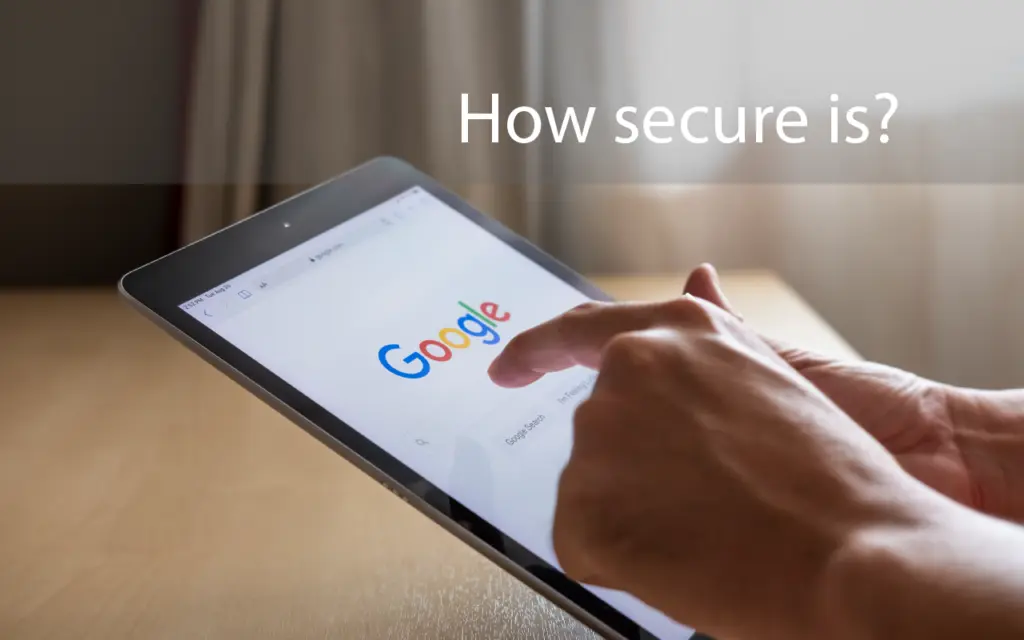‘How secure is…?’ The top Google search questions – answered.
On average there are 40,000 searches per second on Google. Interestingly, the highest ranked question that users ask is ‘what is my IP’ totalling a monthly average of 3,350,000 searches!

The field of Google searches is vast, which is why we’ve honed it down and taken to answering for ourselves the top recommended questions when users type in ‘how secure is…’. Fortunately, they were all within our remit.
How secure is my password?
According to a survey from Google and Harris Poll, 65% of us reuse passwords across multiple sites, with 13% of us using the same password for all password encrypted accounts and/or devices. Bad password practises like these are one of the leading causes of data breach today; Verizon reported in 2019 that 80% of data breaches were caused by compromise, with 42% breaches the direct result of a ‘bad’ password.
This is unsurprising considering that the average person uses each password around 14 times (LogMeIn). The features of many unsecure passwords used day-to-day typically centre around them being too ‘close to home’ – using surnames, family birthdays, pet names, or other information like it that can be scooped up via a simple browse of social media
To answer the question, the longer the password, the more encrypted it will be. Keep its topic from anything too personal to you, and try to complicate it with capitals and special characters. Don’t worry about retaining multiple complex combinations for each account – using a secure password manager will mean you can keep your credentials safe. To check how secure your password is, you can also visit this website. The NCSC also offers some great guidance on good password practice for organisations.
How secure is WhatsApp?
As of February 2020, there were two billion active users on WhatsApp across the globe, with at least 5 million businesses using the platform for essential business communications. WhatsApp is end-to-end encrypted, however recent controversies with that app have centred around the latest policy change announcements WhatsApp has made to privacy. The content of messages remains encrypted, however the metadata associated with them, such as location and time of send, is available for WhatsApp to collect and share with them and their third-party companies. Owned by Facebook, who have only disclosed a handful of their affiliate businesses, this poses a risk to information security in that users are not aware of where, nor what, their metadata is being used for.
WhatsApp remains a target for cybercriminal actors looking to gain access through the application to users’ phonebooks and contact lists, of which the app demands access to. To learn more in depth about just how safe WhatsApp is for web and what the latest privacy changes mean, read here.
How secure is Signal?
The WhatsApp debacle of late has instilled the fear in many of its users of the security and use of their data. As such, this has led to a mass movement of many of its customers to rival messaging app Signal, with Signal noting an increase of 7.5 million new users over the first 3 weeks of January alone.
Both communications platforms employ the use of end-to-end encryption, however better security is afforded by Signal, due to the fact it does not have an option to store or backup conversations in the cloud like WhatsApp does. Currently the company is a non-profit foundation backed by billionaires and donations (such as donations from WhatsApp co-creator Brian Acton). Naturally there are large costs associated with running a tech giant, and in the wake of Signal’s mass rise in popularity over the course of 2021 so far, it’s unclear how these advancements will affect the platform’s offering in the future.
How secure is Telegram?
Telegram was founded by Russian billionaire, Pavel Durov. In January of this year it was announced that Telegram has 500 million active users, 25 million of which migrated from WhatsApp as a result of their policy backlash.
Telegram is less secure than even WhatsApp, as messages are not encrypted end-to-end by default. Individual users can communicate end-to-end and bypass Telegram’s cloud in a “secret chat” function; however, you can’t do this in groups (fairly useless when you consider it as an option for business use). Users can choose to trust Telegram with message content, however must be aware that they hold the decryption keys to all messages. These are located in multiple jurisdictions so as to avoid demands from law enforcement. Either way, your content is not ‘for your eyes only’, and whether it is accessed or not, the general security feel is different from a provider who is technically physically unable to access your content and information, even if they wanted to.
How secure are the SVM (Secure Voice Messaging) solutions Serbus offer?
You got us – whilst this technically isn’t in the top 5 Googled search terms for ‘how secure is,’ it’s still worth answering when you consider that the top questions answered above all pertain to secure communications.
We pride ourselves on our truly secure communications options; complete end-to-end encryption of voice, video and messaging conferences between you and your teams. Not only that, should your business needs require further confidentiality, our solutions can protect any associated metadata that comes alongside messaging and calls, such as location and time.
To learn more about these options and which would be better suited to your needs, visit here, or get in touch via email on [email protected] or phone us on +44 (0)1432 870 879.